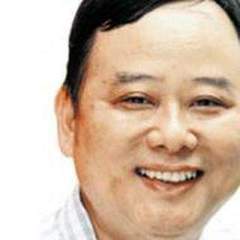China's new State Council and the president's men
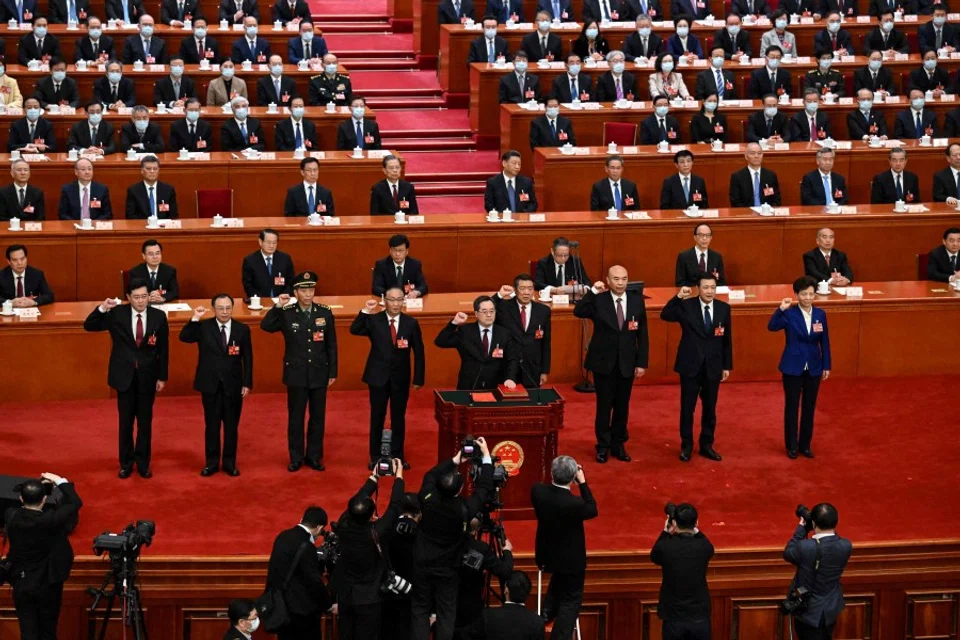
On 12 March, Ding Xuexiang, He Lifeng, Zhang Guoqing and Liu Guozhong were endorsed as China's vice-premiers at the first session of the 14th National People's Congress (NPC), while Li Shangfu, Wang Xiaohong, Wu Zhenglong, Shen Yiqin and Qin Gang were endorsed as state councilors.
Together with Premier Li Qiang, who took office on 11 March, China's new government leadership team has been formally established.
After the Chinese Communist Party (CCP)'s 20th Party Congress in October last year, the new State Council leadership started to take shape. There was no doubt about the premier and first vice-premier. The vice-premiers and state councilors surfaced soon after. Notably, the new foreign minister Qin Gang "jumped two grades" in three months, from US ambassador at deputy-ministerial level to state councilor at sub-national leader level (副国级).
Another characteristic of the new State Council is that the leaders are close to Chinese President Xi Jinping.
A major reorganisation of the State Council
The biggest characteristic of the new government leadership is new faces and new duties. Before the 20th Party Congress, few would have foreseen the degree of reorganisation of the State Council leadership. Premier Li Qiang and Vice-Premier Ding Xuexiang have no experience with leadership roles in the State Council - Ding has no experience leading local government at a provincial level or working in a central government committee. This is a first for the State Council since reform and opening up.
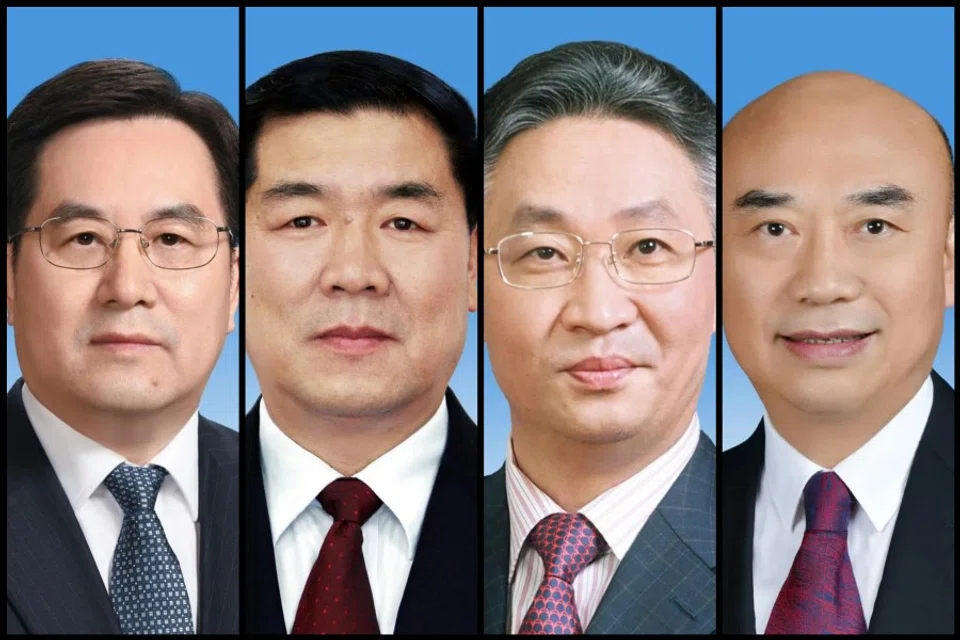
Another characteristic of the new State Council is that the leaders are close to Chinese President Xi Jinping. Li was previously secretary-general of Zhejiang's provincial party committee under Xi, who was then Zhejiang party secretary. As for Ding, when Xi was Shanghai party secretary, Ding was his aide; in 2013, Ding became deputy director of the General Office of the CCP and director of the Chinese President's Office; in 2017, after the 19th Party Congress, he was promoted to the Politburo, and became director of the General Office of the CCP. After the 20th Party Congress, Ding was promoted to the Politburo Standing Committee (PSC), and was appointed vice-premier.
Over the past ten years, Ding has been promoted from deputy-ministerial level to state level, but his status as Xi's "aide" has not changed. After becoming first vice-premier, it remains unclear whether Ding will relinquish his position as director of the General Office of the CCP.
Close colleagues of the president
Vice-Premier He Lifeng goes back even further with Xi. In the mid-1980s, when He was deputy director of the Xiamen municipal government office, Xi was executive vice-mayor of Xiamen city. From the mid-1990s to the early 2000s, when Xi was deputy party secretary and later governor of Fujian, He was Quanzhou mayor and party secretary and Fuzhou party secretary. In 2017, He was appointed chairman of the National Development and Reform Commission, and became one of Xi's main staffers at various events.
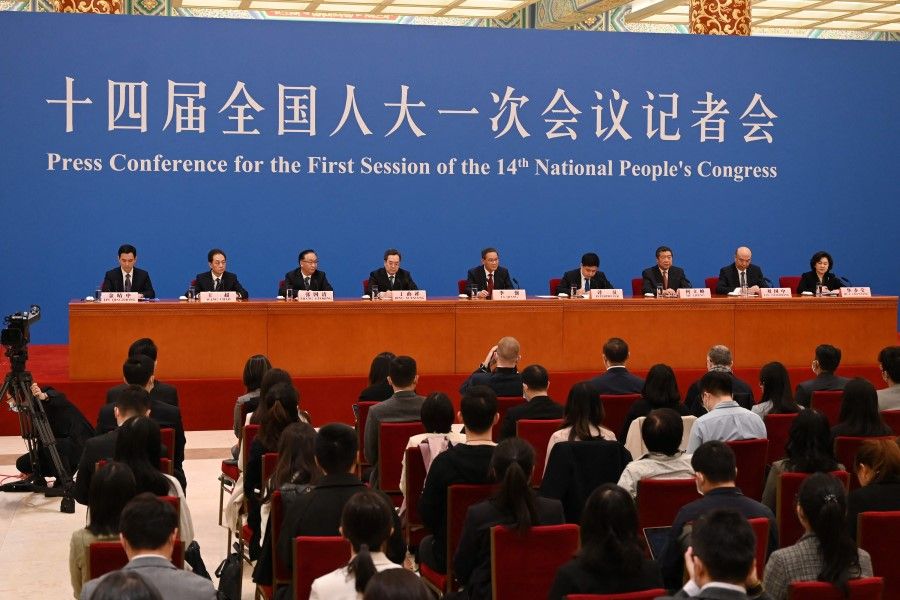
Vice-premiers Zhang and Liu come from a military engineering background. Zhang was vice-president and then president of Norinco, one of China's largest armament manufacturers; in 2013, he was appointed deputy party secretary for the Chongqing municipal committee; in 2017, he was promoted to Chongqing mayor; in 2018, he was moved to Tianjin as mayor; in 2020, he was appointed Liaoning party secretary.
Liu graduated from the artillery department of the East China Institute of Engineering (now the Nanjing University of Science and Technology), and worked in a military arms factory in Heilongjiang, where he later joined the General Office of the provincial government. In 2008, he was appointed a member of the Heilongjiang provincial party standing committee, and took on leadership roles in the Secretariat of the All-China Federation of Trade Unions and in Sichuan; in 2017, he was promoted to be Jilin governor; in 2018, he was appointed Shaanxi governor; in 2020, he was promoted to Shaanxi party secretary.
...the composition of the new State Council also reflects a greater emphasis on politics and the overall global situation.
Greater emphasis on politics and the overall situation
After the CCP's 20th Party Congress, a group of military and aerospace experts, such as Zhang Guoqing, Liu Guozhong, Ma Xingrui and Yuan Jiajun gained prominence, entering the 20th Politburo. Ma has been serving as the party secretary of Xinjiang, while Yuan was appointed the party secretary of Chongqing.
The bringing in of senior officials from the military and aerospace fields does not only reflect the rapid development of these sectors in recent years but also the fact that these industries are inseparable from politics and the overall global situation. In fact, the composition of the new State Council also reflects a greater emphasis on politics and the overall global situation.
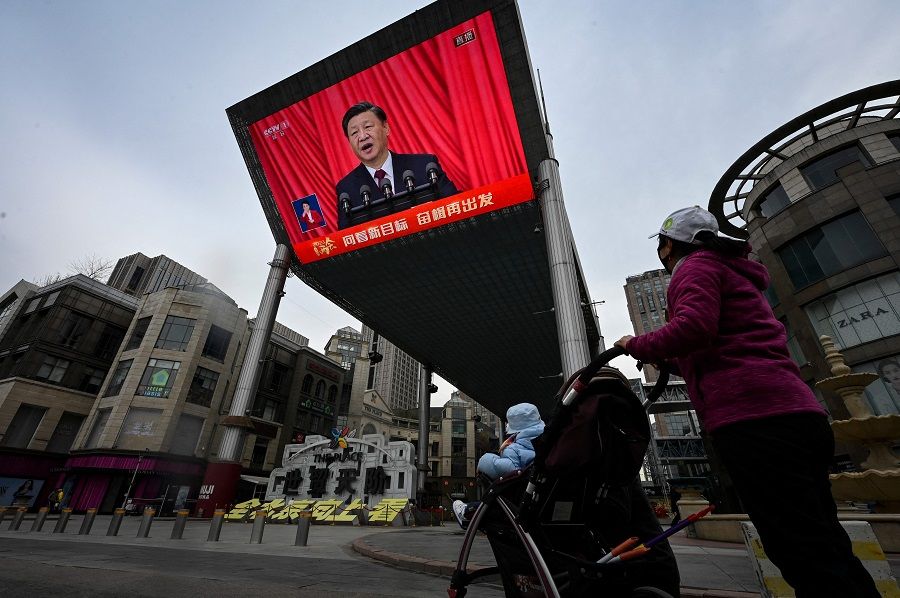
The core of Chinese politics is to achieve the "Two Upholds" - upholding Comrade Xi Jinping's core position on the CCP Central Committee and in the party as a whole, and upholding the Central Committee's authority and its centralised, unified leadership.
When joining National People's Congress (NPC) deputies from Yunnan in a group deliberation on 6 March, Li Qiang stressed the importance of deeply understanding the decisive significance of the "Two Affirmations", strengthening the "Four Consciousnesses", bolstering the "Four Confidences", and ensuring the "Two Upholds" based on the country's momentous development journey and remarkable achievements.
In a deliberation with NPC deputies from the Liaoning, Ding Xuexiang stressed efforts to resolutely uphold the authority and centralised leadership of the party's Central Committee with Xi Jinping at its core, to adhere to and improve institutional mechanisms of the CCP to lead economic and social development, and to ensure the full implementation of the CCP Central Committee's decisions and plans.
Since the CCP's 18th Party Congress, under the overarching theme of "the Party leads everything", the State Council's positioning in China's decision-making process has weakened.
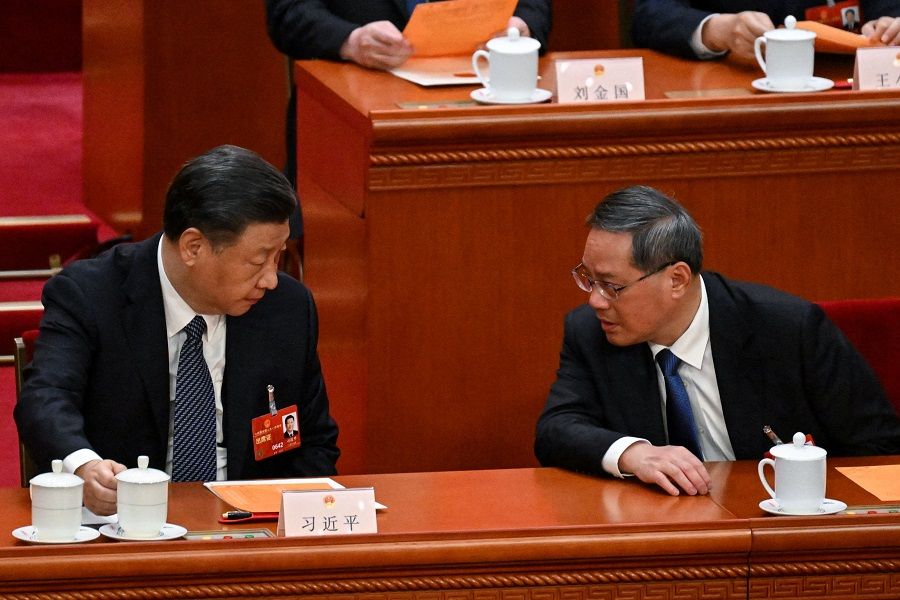
Since the CCP's 18th Party Congress, under the overarching theme of "the Party leads everything", the State Council's positioning in China's decision-making process has weakened. Some of the economic work originally led by the State Council has also been devolved to the Central Financial and Economic Affairs Commission and the Central Comprehensively Deepening Reforms Commission, reducing the State Council to a political body that focuses more on policy implementation rather than decision-making. Even former Chinese Premier Li Keqiang, who just ended his ten-year tenure, was unable to exude the confidence of his predecessors Zhu Rongji and Wen Jiabao.
Economic development, especially sustained economic growth, remains China's top priority.
State Council still important
But this does not mean that the State Council is unimportant. As China's highest state administrative organ, the State Council includes two Politburo Standing Committee members and four Politburo members, and is still a political body second only to the CCP Central Committee.
In addition, this new State Council has one distinguishing asset - Li Qiang, Ding Xuexiang and He Lifeng have had long stints in the more economically developed southeast coast, giving them vast experience in creating the right business environment and promoting the development of the private sector. Economic development, especially sustained economic growth, remains China's top priority. In that sense, the new State Council trusted by Xi still has great prospects.
This article was first published in Lianhe Zaobao as "中国新一届政府特色".
Related: Li Keqiang's departure means political leaders of Xi's generation have all but retired | The rapid rise of 'the cosmos club' in the Xi Jinping era: Countdown to the 20th Party Congress | A new breed of technocratic elites in the Xi era: Countdown to the 20th Party Congress | China's next premier Li Qiang: More implementation, less decision-making | Shanghai's new leader Chen Jining's all-out effort to boost economy: Will it work?
